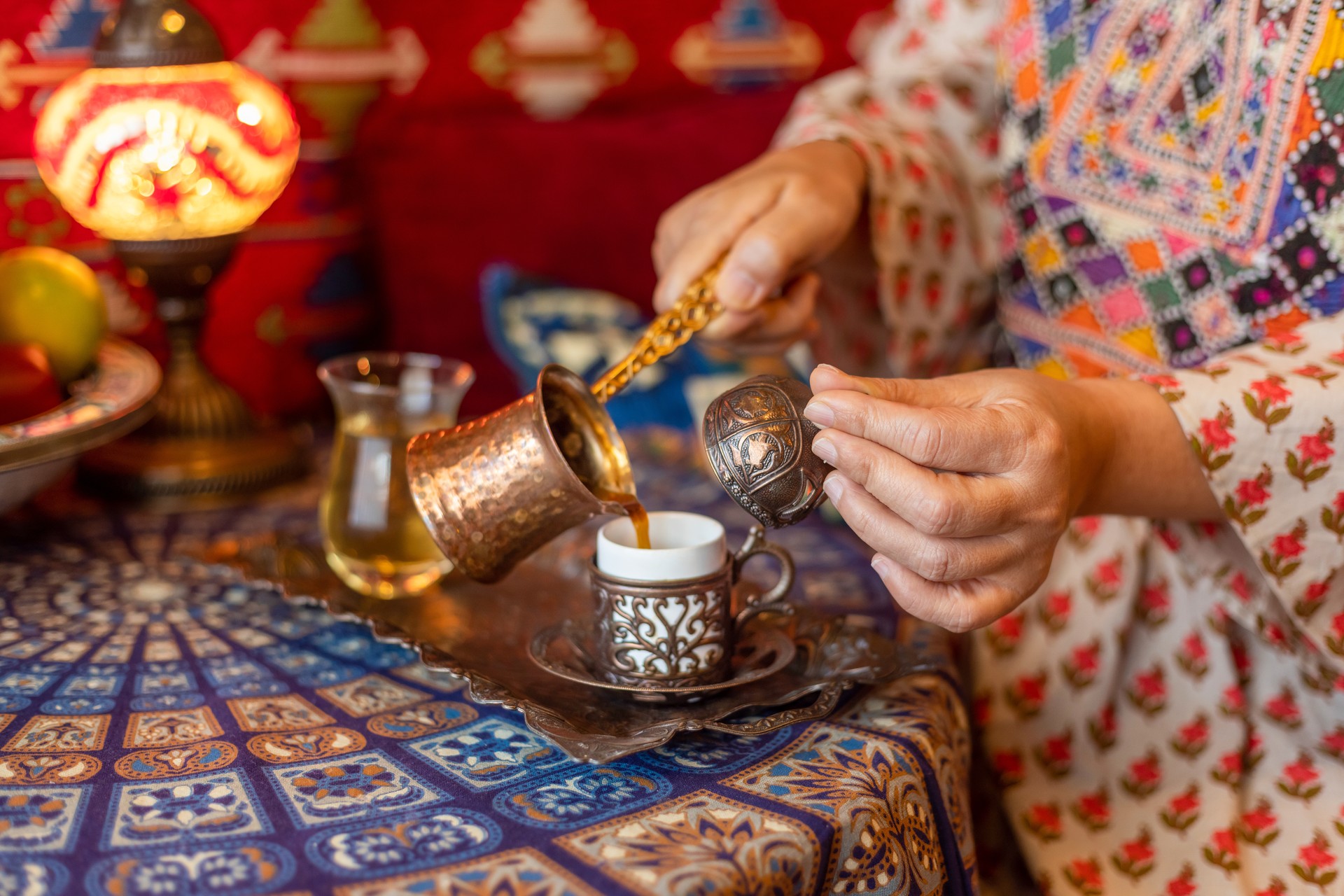
Turkish coffee is not just a beverage but a symbol of tradition, culture, and social interaction.
Its preparation method, ceremonial significance, and role in social events distinguish it from other coffee traditions worldwide. Recognized by UNESCO as part of the Intangible Cultural Heritage of Humanity in 2013, Turkish coffee continues to connect people, creating shared experiences across generations.

Unlike other coffee-making techniques, Turkish coffee is prepared by boiling finely ground Arabica beans in a cezve (a small, long-handled pot) with water and sugar, if desired.
The coffee is not filtered, allowing the grounds to settle at the bottom of the cup. This process creates a rich, concentrated flavor, enhanced by the foamy top layer that forms during brewing. Unlike espresso, Turkish coffee is enjoyed slowly, savoring each sip while engaging in conversation.
The history of Turkish coffee dates back to the 16th century when Syrian traders introduced it to Istanbul. Over time, it became an essential part of Ottoman court life. Coffeehouses, known as kiraathane, began to emerge, becoming social hubs where people gathered to enjoy coffee while discussing literature, politics, and daily life. Today, it remains a staple in Turkish households, often served during social gatherings, weddings, and other significant events.
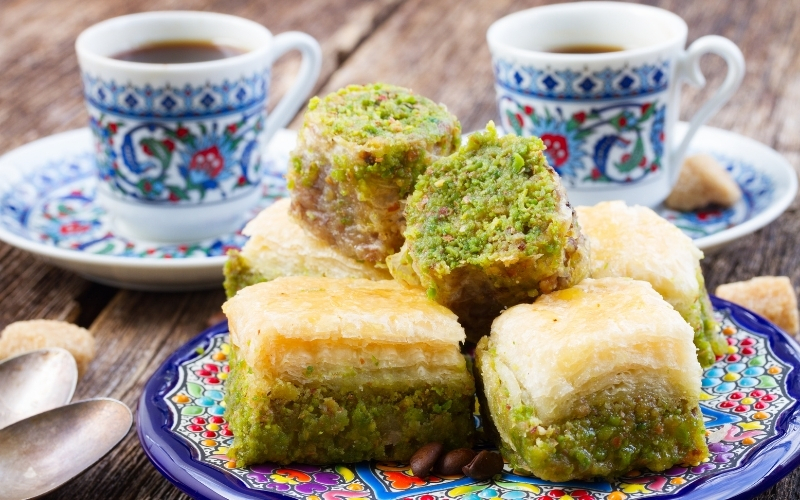
Despite economic challenges and soaring inflation, coffee consumption in Türkiye has surged significantly in recent years. Over the past decade, coffee consumption per capita has quadrupled, growing from 350 grams to 1.5 kilograms per person. This increase is fueled by both the strong cultural presence of traditional Turkish coffee and the rising popularity of specialty coffee shops.
The branded coffee shop market saw a 9% growth between 2022 and 2023, with over 3,100 stores operating across the country, reflecting a balance between time-honored coffee traditions and modern tastes. While espresso-based drinks are gaining popularity, particularly among younger generations, Turkish coffee still accounts for 70% of all coffee consumed. This highlights the deep-rooted cultural significance of Turkish coffee, which continues to hold its place even as the broader coffee market evolves.
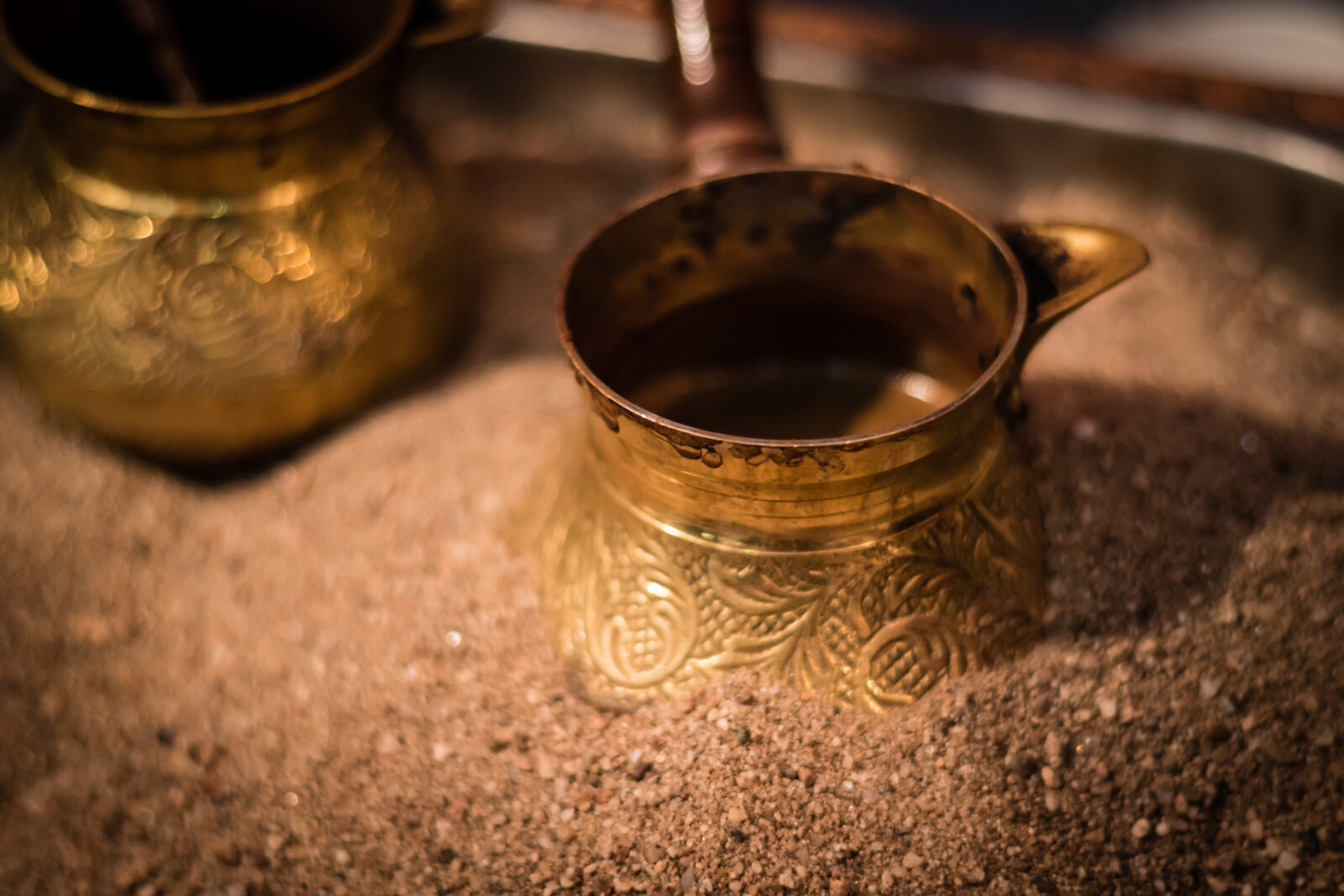
Serving Turkish coffee is an act of hospitality and respect, a practice deeply rooted in Turkish culture. Whether hosting a guest or meeting with friends, offering a cup of coffee is a gesture of goodwill. Traditionally, Turkish coffee is accompanied by a glass of water and sometimes a piece of Turkish delight to balance its strong flavor.
In addition to its role in everyday life, Turkish coffee has a prominent place in Turkish wedding customs. During the engagement ceremony, the bride-to-be prepares and serves coffee to the groom's family. Some brides add salt instead of sugar to the groom's coffee, testing his patience and commitment. This playful tradition reflects the deep social importance of coffee in Turkish culture.
The act of fortune-telling, or tasseography, is another fascinating aspect of Turkish coffee culture. After finishing a cup, the drinker turns the cup upside down, allowing the grounds to create patterns. These patterns are then interpreted to predict the future, blending mysticism with the social ritual of coffee drinking.
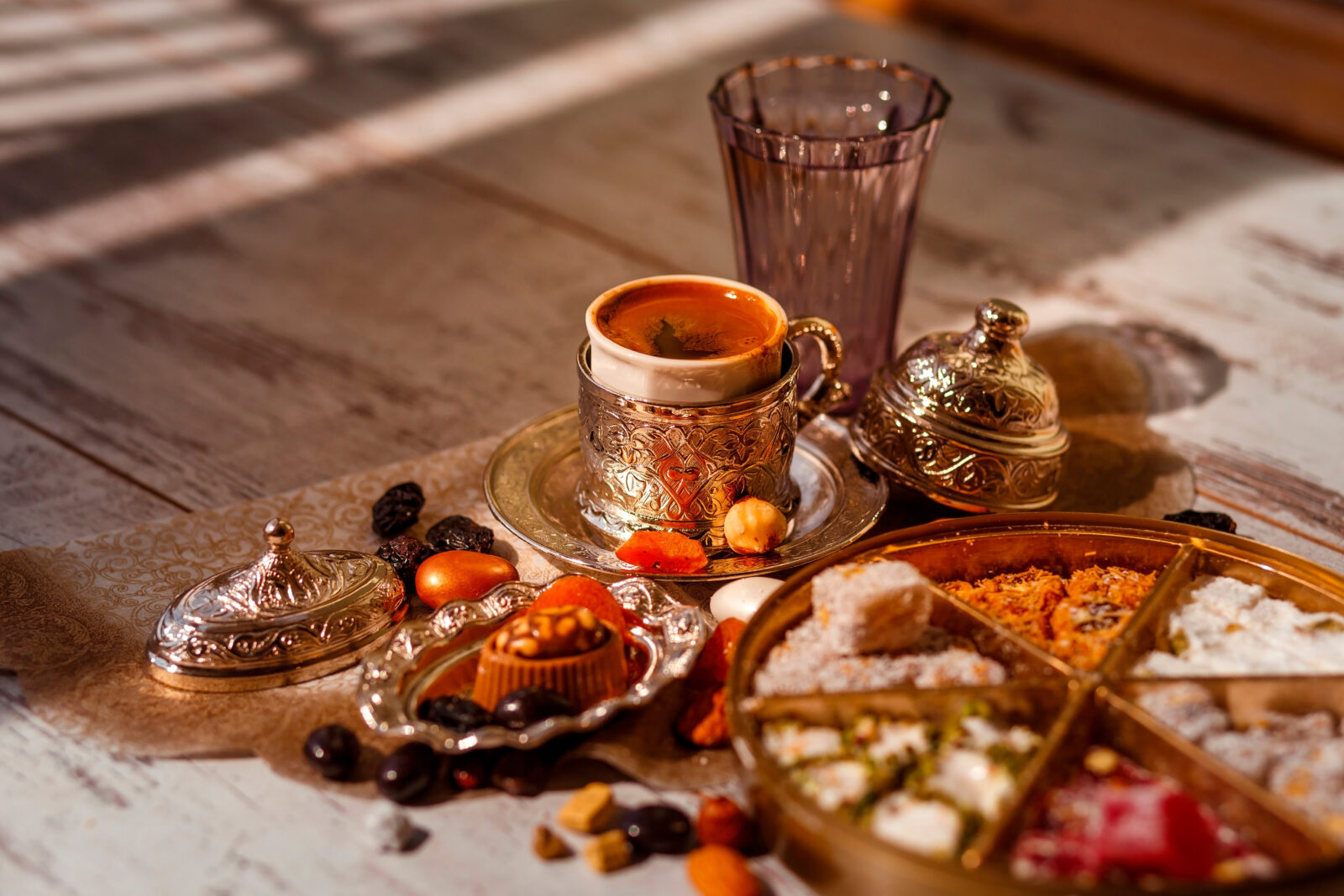
The origins of coffee go back to the ninth century in Ethiopia, where legend credits a goat herder named Kaldi with discovering coffee’s energizing effects. Kaldi noticed his goats becoming lively after eating berries from a particular tree. He shared his findings with local monks, who found that coffee helped them stay awake during long prayer sessions.
Coffee was first exported from Ethiopia to Yemen in the 15th century, where it became integral to Sufi religious practices. The drink soon spread to the Ottoman Empire, where it flourished. The first recorded coffeehouse in the empire opened in Istanbul in 1555, marking the beginning of a rich coffee culture. Coffeehouses, or kahvehanes, became popular gathering places for intellectuals and artists, playing a central role in Ottoman society.
Contrary to popular belief, Italy did not invent coffee, but it did revolutionize how coffee was brewed and consumed, particularly through the invention of the espresso in the early 20th century. Businessman Luigi Bezzera created the first espresso machine in Venice around 1903, aiming to speed up coffee preparation. His invention, later perfected by Desiderio Pavoni, helped popularize espresso as a quick and strong coffee beverage
From the Ottoman Empire, coffee spread to Europe in the 17th century. European travelers brought back stories of this unique beverage, and it quickly gained popularity across the continent.
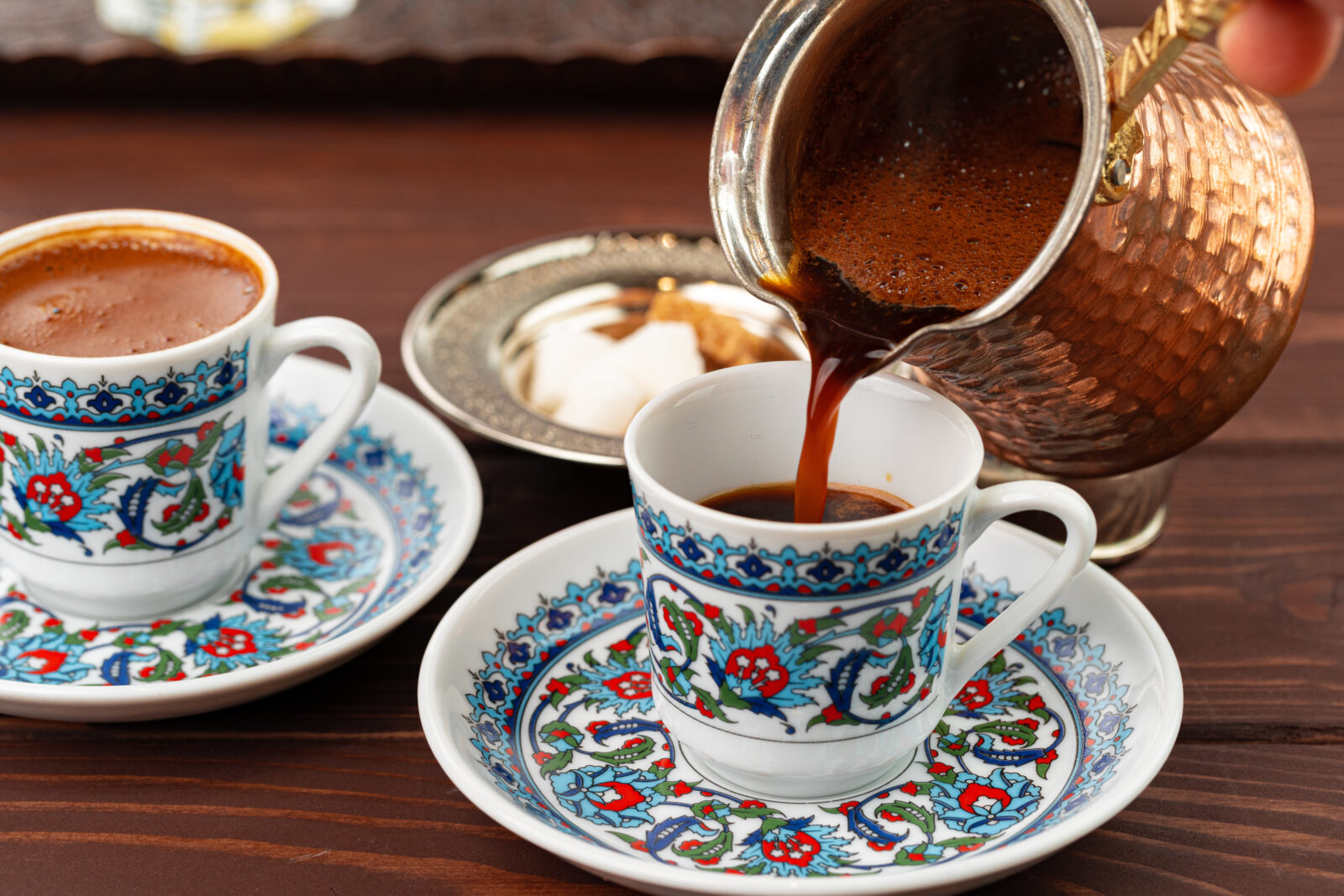
While coffee holds a unique place in Turkish society, other countries also have strong coffee traditions. In Italy, espresso dominates, with its quick brewing process and concentrated flavor, served in small cups.
In France, coffee is often enjoyed as part of a leisurely café culture, where people sit for long periods, enjoying their drinks alongside a pastry. Meanwhile, in Ethiopia, coffee ceremonies hold great cultural significance, reflecting its communal and ceremonial value.
What sets Turkish coffee apart is not just the brewing process but the cultural significance attached to it. From the use of special equipment like the cezve and fincan (small coffee cup) to the traditions passed down through generations, coffee is more than a drink; it is a cultural experience that fosters connection and preserves history.